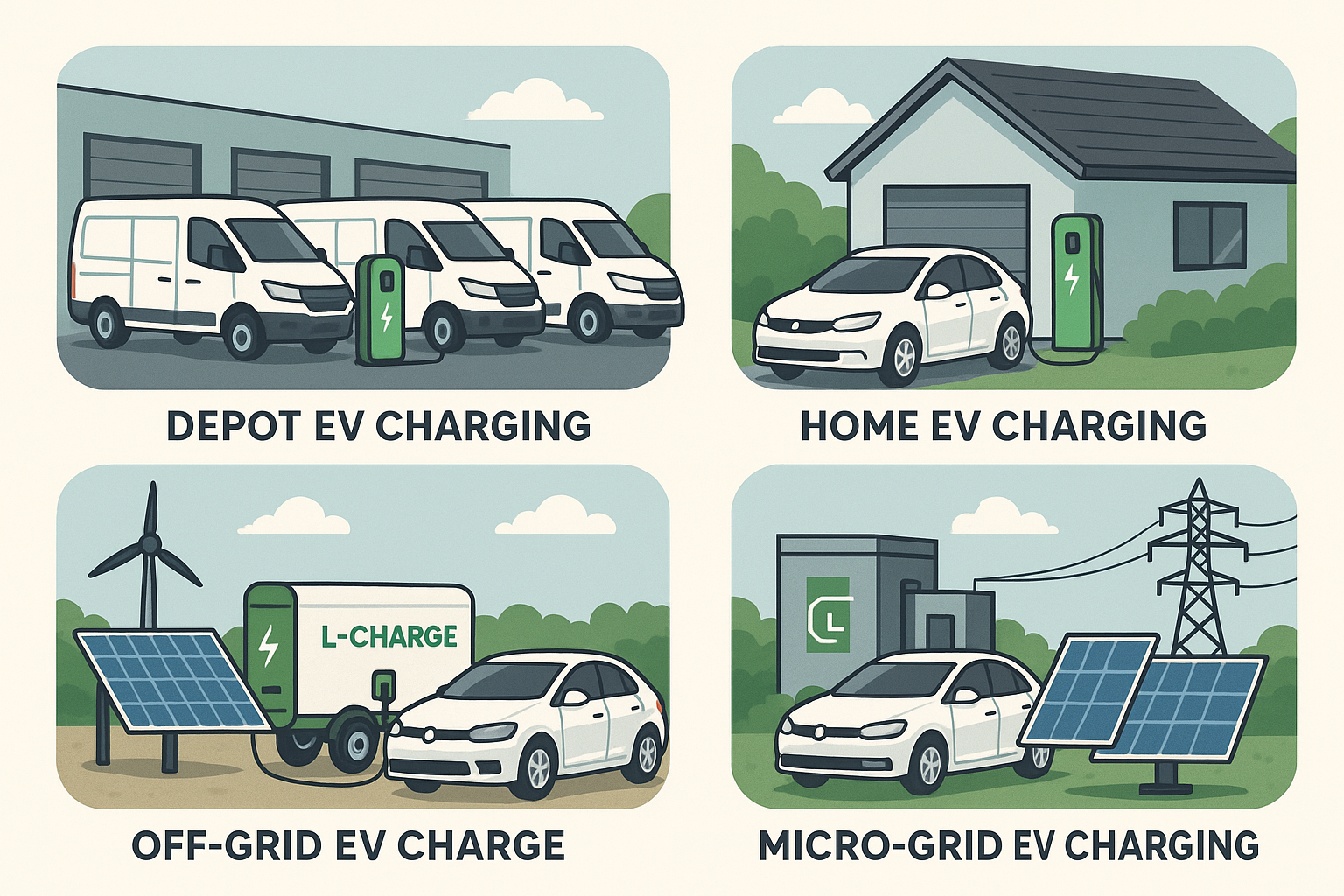EV Fleet Charging Solutions: A Guide for Fleet Managers


As commercial fleets transition to electric vehicles, one question stands out: how do you keep them reliably charged and on the road? The right EV fleet charging solution can dramatically impact your operational uptime, total cost of ownership, and speed of electrification. Whether you’re overseeing a delivery fleet, municipal vehicles, or a regional transit system, understanding your charging options is essential.
Below is a breakdown of the primary EV fleet charging solutions available today including the pros, challenges, and best-fit scenarios for each.
Depot charging is the most common approach for electrified fleets, especially those that return to a central base overnight. This solution allows for controlled, centralized energy management, scheduled charging during off-peak hours, and smooth integration with fleet management software. However, it comes with high upfront infrastructure costs, potential grid upgrade requirements, and utility lead times that often stretch from 12 to 36 months. Depot charging works best for bus fleets, last-mile delivery operators, and municipal services with consistent daily routes.
Many commercial operators supplement their depot setup with public DC fast charging stations. These networks require no installation and offer convenience for drivers on the road. However, relying on public charging can introduce variability in availability, higher per-kWh costs, and integration issues with fleet-wide billing or energy tracking systems. This type of EV fleet charging solution is ideal for decentralized fleets such as ride-hailing services or field service teams who travel widely and need flexible access.
When utility delays or grid constraints block your electrification plans, off-grid EV fleet charging solutions offer a powerful alternative. Mobile chargers like those from L-Charge provide ultra-fast charging at your site without any reliance on the grid. These modular systems can be deployed in a matter of weeks, not years, and require no capital investment when delivered through a Charging-as-a-Service model. For fleets operating in temporary depots, construction zones, or underserved regions, mobile charging is a fast, flexible way to scale up EV deployment.
This approach is especially valuable for companies seeking immediate charging infrastructure without waiting on permitting, transformers, or utility coordination. While mobile charging offers speed and flexibility, some systems may require fuel such as renewable natural gas (RNG) or compressed natural gas (CNG) unless they’re fully battery-powered, and availability can still be limited in certain regions.
For light-duty or company car fleets, residential charging is another viable route. It’s quick to implement and leverages existing infrastructure. Drivers can recharge overnight, and no site modifications are necessary. However, it introduces challenges around reimbursing drivers, tracking energy consumption, and ensuring consistent access to charging at home. It’s best suited for fleets where vehicles are assigned to individuals and daily mileage is predictable.
When grid capacity is limited, or when sustainability goals are in focus, battery storage and microgrid systems offer long-term charging support. These systems help reduce peak demand charges, provide resilience in case of grid outages, and allow integration with on-site renewables like solar. They are complex to install and typically come with a higher capital investment and longer timelines. Still, they serve as a strong backbone for fleets operating at high power levels or in areas with unreliable utility access.
There is no universal answer the best EV fleet charging solution depends on your fleet size, vehicle types, site characteristics, and rollout timeline. In many cases, a hybrid approach works best. Leading operators often combine depot charging with public networks, home charging, and increasingly, off-grid mobile chargers to ensure flexibility, resilience, and speed.
If your electrification goals are being stalled by infrastructure delays or grid constraints, it may be time to explore grid-free EV fleet charging solutions. At L-Charge, we help fleets deploy ultra-fast, mobile charging units in just weeks no grid connection, no capital expense, no operational downtime.
Ready to move faster on your fleet electrification plans?
Talk to us about the EV fleet charging solution that fits your operation.